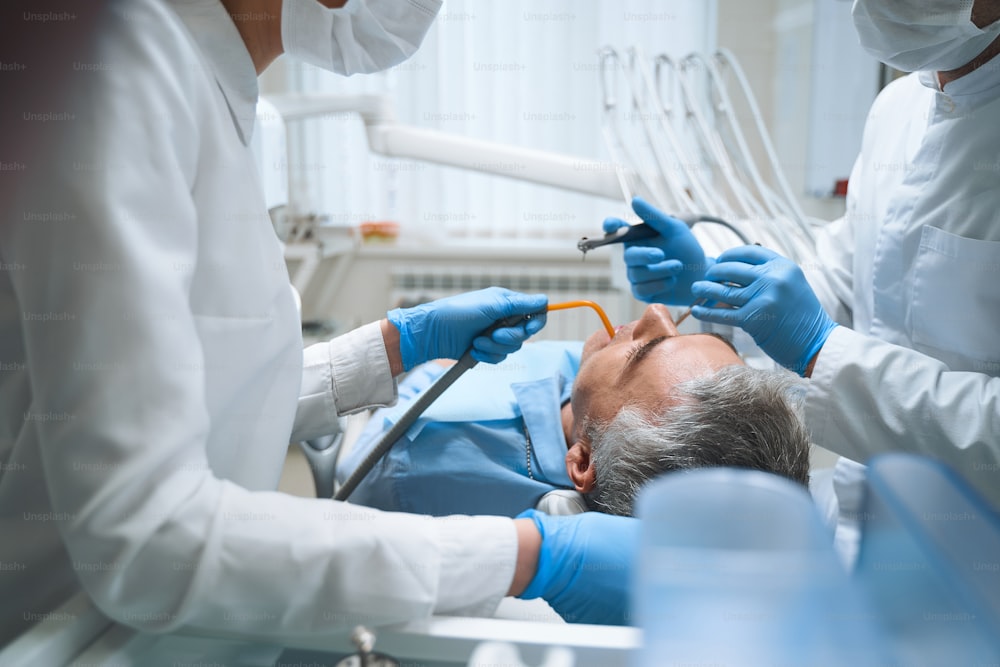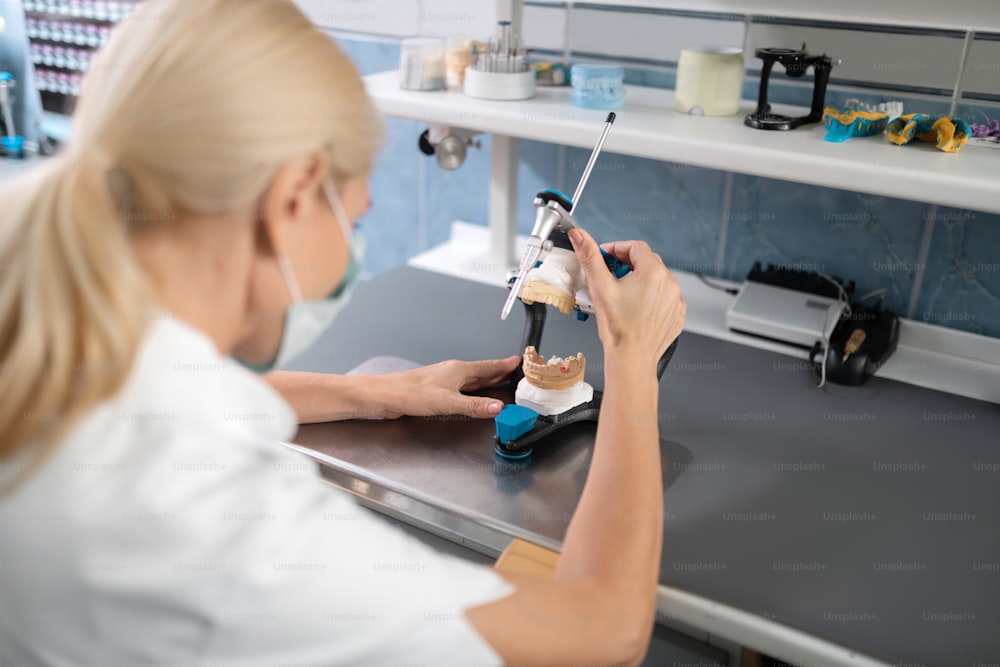Dental Implant Sunbury OH - Dental Implant Placement
When figuring out what kind of anesthesia is used for dental implants, it turns into essential to discover various choices out there to sufferers. The choice of anesthesia can significantly impact the consolation of the procedure, the general experience, and the speed of recovery.

Local anesthesia is the most commonly used type for dental implant surgeries. In this technique, an anesthetic agent is injected close to the surgical site. Local anesthesia successfully numbs the targeted space, allowing the oral surgeon or dentist to perform the procedure with minimal pain to the affected person. It is beneficial as a end result of sufferers stay totally awake and conscious all through the method, fostering a way of control.
Sedation dentistry presents one other strategy for many who may really feel anxious in regards to the process. Sedation can vary from delicate to deep, permitting sufferers to loosen up while their implants are placed. Different levels of sedation can be achieved through oral sedatives, nitrous oxide, or intravenous methods. The level of rest could be tailored to the specific needs or anxiousness ranges of the affected person.
Dental Implant Alexandria OH - Best Dentists with Reviews

Nitrous oxide, commonly known as laughing gas, is a well-liked choice for dental procedures, together with implants. This type of sedation works quickly, allowing patients to feel relaxed and euphoric. Administration is handy, because the gas is inhaled via a masks placed over the nose. Patients can typically resume normal actions shortly after the procedure, making nitrous oxide a favourite amongst both dentists and patients.
Another option is oral sedation. This method entails taking a prescribed sedative before the appointment. Patients usually feel sleepy and less aware of their environment while still with the power to talk with their dental staff if essential. While oral sedation is effective, its onset and duration can vary from individual to individual, so dentists should consider particular person needs rigorously.
Intravenous (IV) sedation presents deeper ranges of sedation, best for longer or extra complex procedures. This methodology permits for rapid adjustment of sedation levels, as the anesthetic is administered immediately into the bloodstream. Patients in this state may feel extraordinarily relaxed and won't remember the process afterward. IV sedation typically requires a more extensive recovery interval compared to native anesthesia alone.
Dental Implant Granville OH - Best Dental Implants near Ohio

General anesthesia, although generally reserved for extra invasive surgeries, may additionally be considered for dental implants in particular conditions. This type of anesthesia induces a state of complete unconsciousness, requiring shut monitoring by an anesthesiologist. General anesthesia is appropriate for patients with severe anxiety, those that have problem sitting nonetheless for lengthy periods, or when multiple procedures are performed concurrently.
The number of anesthesia might also depend upon the patient's medical history and any underlying medical conditions. Some sicknesses may increase the danger of complications during anesthesia. Detailed discussions between the affected person and the dental team can lead to a personalized anesthetic plan that ensures security while enhancing consolation.
Dental Implant Johnstown OH - Emergency Dentist
Many patients specific concern regarding the unwanted facet effects related to anesthesia. While side effects can differ based mostly on the kind used, most local anesthetics show minimal risks. Common concerns embrace short-term numbness and swelling close to the injection web site. For those who go for sedation, unwanted effects could encompass drowsiness, dizziness, or nausea.
Recovery time additionally plays a task within the selection of anesthesia. Local anesthesia typically permits for a quicker recovery, enabling sufferers to renew regular actions within hours (Dental Implant Hartford OH). Sedation strategies could require more time for the treatment to wear off, necessitating preparations for transportation post-procedure.
The significance of communication between the patient and the dental practitioner can't be overstated. Sharing issues and preferences allows for a tailored anesthetic method. A thorough evaluation helps to determine probably the most acceptable kind of anesthesia to make sure each comfort and effectiveness through the dental implant procedure.
Dental Implant Sunbury OH - Dental Implant Placement
In addition to comfort and security, the overall success of dental implants can additionally be influenced by the selection of anesthesia. The effects of anxiety on the body can complicate surgical procedures and lengthen recovery occasions. Therefore, a proper anesthetic plan plays a crucial position in not only immediate comfort but also the long-term success of the dental implants.
Patients ought to be ready to debate their medical history, nervousness ranges, and private preferences when consulting a dentist for dental implants. This open dialogue permits the practitioner to create an anesthetic technique that suits the person while making certain the procedure runs smoothly and efficiently.
The quest for a pain-free dental implant process can be daunting for many. The various forms of anesthesia create choices that may fit individual wants, life, and luxury ranges. The right selection of anesthesia can turn a doubtlessly stressful dental visit into a more manageable expertise.
Dental Implant Hartford OH - Dental Services - Ohio
In conclusion, understanding what kind of anesthesia is used for dental implants is essential for patients making ready for the procedure. From local to common anesthesia, every technique has its advantages and considerations. With quite lots of choices available, patients can work intently with their dental team to determine the most effective method, enhancing not only comfort but additionally the likelihood of a successful consequence. Ultimately, the choice of anesthesia immediately impacts both the experience during the process and the general satisfaction with dental implants.
- Local anesthesia is predominantly used for dental implants, providing focused numbing to the surgical web site while permitting the patient to remain absolutely acutely aware.
- Common native anesthetics include lidocaine, articaine, and mepivacaine, each chosen for his or her effectiveness and duration of action.
- Sedation dentistry may also be employed for sufferers with anxiety, typically utilizing reasonable sedation methods like nitrous oxide or oral sedatives.
- General anesthesia can be an option for advanced cases or in patients with extreme anxiousness or special needs, making certain a completely unconscious state.
- The choice of anesthesia depends on the affected person's medical historical past, degree of anxiety, and complexity of the implant procedure.
- During the procedure, monitoring of important signs ensures the patient's security and comfort ranges are maintained.
- Post-surgery, sufferers are sometimes given directions concerning pain management, which can embrace over-the-counter pain relievers alongside suggested dosages of local anesthesia.
- The use of anesthetic brokers can differ primarily based on particular person responses, necessitating a tailored method from the dental skilled.
- Some dental practices might offer digital actuality or distraction techniques to help patients manage anxiousness alongside anesthesia options.undefinedWhat sort of anesthesia is used for dental implants?
What is the most typical sort of anesthesia used for dental implants?undefinedThe most common kind of anesthesia for dental implants is native anesthesia, specifically lidocaine. This numbs the surgical space to reduce pain in the course of the process.
Dental Implant Hartford OH - Dental Services - Ohio

Can I request sedation for my dental implant surgery?undefinedYes, many dentists supply sedation options, corresponding to oral sedation or nitrous oxide, for sufferers who feel anxious or favor a more relaxed expertise during dental implant surgery.
Will I be awake during the dental implant procedure?undefinedIf local anesthesia is used, you may be awake however numb within the treatment space. If sedation is chosen, you might be in a light-weight sleep and never absolutely conscious of the process.
How long does the anesthesia last through the procedure?undefinedThe results of local anesthesia usually last for 1 to three hours, relying on the precise treatment used. However, the period can vary primarily based on particular person components.
Are there any side effects of dental anesthesia?undefinedPossible side effects can embrace temporary numbness, swelling, bruising, and, in rare cases, allergic reactions - Dental Implant Hartford OH. It's necessary great post to read to debate any concerns together with your dentist beforehand.
Dental Implant Condit OH - General dentists within 20 miles of Ohio
Can I eat or drink after receiving anesthesia for my dental implant?undefinedIt's pop over to this site best to keep away from consuming or drinking till the numbness has fully worn off to stop biting your tongue or cheek. Follow your dentist’s particular post-operative instructions for the best results.
How is anesthesia administered for dental implants?undefinedLocal anesthesia is usually administered through a small injection instantly into the gum tissue. Sedation options might contain inhalation or oral medication that can assist you chill out before the process.
Dental Implant Columbus OH - General dentists within 20 miles of Ohio
Do I need somebody to drive me home after the procedure?undefinedIf you’ve received sedation, it’s beneficial to have somebody drive you residence, as you might feel groggy or disoriented. Local anesthesia alone usually does not require assistance.
What if I have a worry of needles?undefinedIf you might have a fear of needles, focus on this along with your dentist. Dental Implant New Albany OH. They can provide methods to help ease your anxiety, corresponding to using topical numbing brokers earlier than the injection.